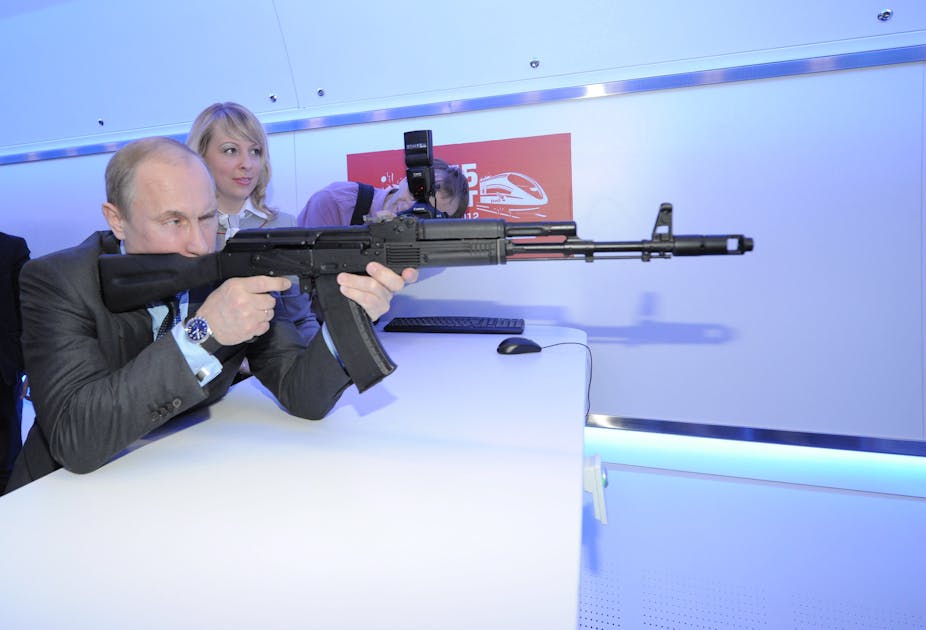The downing of flight MH17 has caused attention to shift once again to the prospect of even harsher penalties being imposed upon Russia by Western countries. Up to this point, sanctions have been limited to individuals within or close to Russia’s ruling elite, as well as a few associated companies. While these sanctions may weaken support within Russia’s elite for the current course of foreign policy, the effect on economic activity in Russia has been relatively muted.
The most recent discussions among European leaders led to an expansion of the existing list of Russians subject to asset freezes and visa bans. But a decision on whether to apply so-called “third tier” sanctions – that is, sanctions applied to whole sectors of the Russian economy, or export bans on technology that might be used in Russia’s defence or energy sectors – was once again postponed, although this may change if Western countries lose patience with what they consider to be Russian intransigence in Ukraine.
With these discussions ongoing, it is useful to consider what might happen if Europe and the US were to impose an enhanced package of economic sanctions.
Aiming high
A useful starting point is to consider the objectives of Western policy makers in applying sanctions in the first place. The “surgical” nature of sanctions imposed so far suggests that Western governments do not intend to seriously harm Russia’s economy or its people.
Instead, the array of measures so far chosen – focused as they are on individuals and entities with close ties to President Putin, his inner circle, and those with direct ties to the conflict in Ukraine – has likely been selected to inflict pain on key members of Russia’s ruling elite, in the hope that this will force them to pressure Putin to change his foreign policy.
This strategy is based on certain assumptions about the nature of Russia’s political system. By focusing sanctions on the elite, Western policy makers are showing that they think it is those at the top, and not the wider electorate, who determine the direction of foreign policy in Russia. Any future escalation of sanctions to encompass Russia’s strategic sectors – defence, energy and finance – might be viewed as a logical step in ramping up pressure on the elite.
Strengthening the regime
But what if “third tier” sanctions have the opposite effect, and instead of weakening elite support for Putin they cause a strengthening of the current regime? This could happen because sanctions have specific distributional effects in oligarchic regimes like Russia, and can serve to bolster the state and enrich politically important individuals and organisations. This could happen if the leadership in Russia decides to use sanctions as an opportunity to transfer economic resources to key political allies.
To illustrate this point, consider how Russia might respond to an embargo on Western defence or dual-use technology to Russia. While existing supply chains would be interrupted, it would offer the leadership the chance to shift more resources to develop domestic industries instead.
This wouldn’t be great from an economic point of view, as it is unlikely that Russia would be able to produce goods as well or as efficiently as Western firms any time soon. But from a political perspective, the diversion of extra resources to the domestic defence industry would create a constituency that would benefit from sanctions. In the context of Russia’s ongoing rearmament programme, this outcome could increase defence industry support for the current leadership.
While this may sound counter intuitive, it is precisely what happened in South Africa after the imposition of the UN arms embargo in 1977. The sanctions were supposed to help end apartheid, but they had the unintended effect of strengthening the country’s manufacturing sector. In particular, the creation of the Armaments Corporation of South Africa (ARMSCOR) in response to the embargo proved to be a boon for the ruling regime. Domestic high-technology capabilities were enhanced, and ARMSCOR became a major player in the global arms market. Most importantly, it enabled the regime to secure support from a key constituency that was a direct beneficiary of sanctions.
Going solo?
Major sanctions could lead to something similar happening in Russia’s vital energy sector. It is widely acknowledged that Russia will require access to foreign technology and know-how in the future if is to exploit the geologically harder to reach oil and gas deposits in the Arctic and the Far East. But if sanctions denied this, Russia might opt to expand direct state ownership of the industry, and form partnerships with state-owned companies from friendlier countries (China, for instance) to develop indigenous solutions to existing geological challenges.
Again, this solution would not be as economically efficient as current arrangements to access technology and know-how through joint ventures with the likes of BP and Exxon-Mobil. But those charged with managing an energy industry dominated even more by the state than it is now would arguably become even more powerful, not less.
Taken together, the hypothetical scenarios briefly outlined here would represent a reversal from the path of reintegration with the global economy that Russia has undergone over the course of the last twenty years. Instead, a self-sufficient, quasi-autarkic relationship with the global economy could emerge. Although Russia would remain far more open that it was during the Soviet era, it would be a deeply worrying step backwards for those hoping the country would become an open and active part of the global economy.
From South Africa to Iraq or Zimbabwe, sanctions do not always work as intended. Unless carefully tailored to the situation in Moscow, a policy designed to alter Russian behaviour in Ukraine may instead end up achieving an entirely unintended and undesirable outcome: the strengthening of the current regime, and a reassessment of Russia’s role in the global economy.

